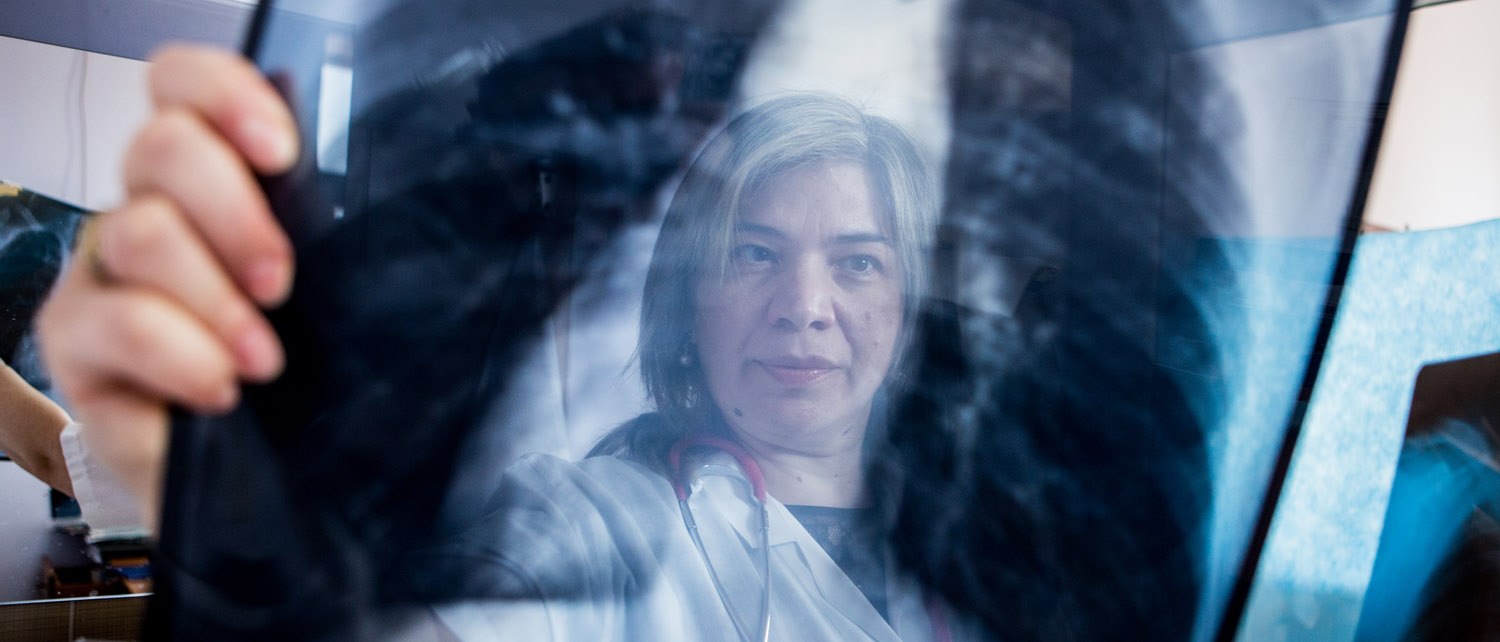Tuberculosis (TB) is still the world’s deadliest infectious disease, as reported today by the World Health Organization (WHO). Last year we saw 10 million new cases and 1.6 million deaths from the disease (including 300,000 people with HIV/AIDS), along with a $1.3 billion shortfall in funding for TB research and development.
According to WHO’s latest Global TB Report, TB also remains the world’s deadliest drug resistant infection, with more than half a million new cases of drug-resistant TB developing in 2017. Current treatment options for multidrug-resistant TB—which take from nine months to two years or more to complete—are only 55 percent effective. For people with extensively drug-resistant TB, the rate of treatment success drops to about 1 in 3.
Simpler, shorter and safer treatments are needed for all forms of TB. We are closer than ever to a future in which novel, all-oral drug regimens make it possible to shorten the duration of therapy for drug-resistant TB to six months or less. Further simplification of treatment for what we now call drug-sensitive TB could markedly improve adherence and survival rates.
TB is a disease of poverty, and treatment must be affordable to all. Current therapies are too expensive—especially for drug-resistant TB—and too many patients cannot afford to be cured. The scope and intensity of the global TB epidemic is fueled in no small part by antiquated and inadequate TB drugs; the need for action has never been more urgent.
The United Nations High Level Meeting on TB taking place on September 26 offers a landmark opportunity to marshal political will and essential resources to end TB. As world leaders gather to issue a response to this crisis, we expect these sobering statistics to spark meaningful commitments. This includes funding for research and product development for new drug therapies that can hasten the end of this ancient disease.
# # #
About Tuberculosis
Tuberculosis (TB) is a global disease, found in every country in the world. It is the leading infectious cause of death worldwide. The World Health Organization estimates that two billion people—one third of the world's population—are infected with Mycobacterium tuberculosis (M.tb), the bacteria that causes TB. In 2016, 10.4 million fell ill from TB and 1.7 million died. It is an airborne disease that can be spread by coughing or sneezing.
About TB Alliance
TB Alliance is a not-for-profit organization dedicated to finding faster-acting and affordable drug regimens to fight tuberculosis (TB). Through innovative science and with partners around the globe, we aim to ensure equitable access to faster, better TB cures that will advance global health and prosperity. TB Alliance operates with support from Australia’s Department of Foreign Affairs and Trade, Bill & Melinda Gates Foundation, Germany’s Federal Ministry of Education and Research through KfW, Global Health Innovative Technology Fund, Indonesia Health Fund, Irish Aid, National Institute of Allergy and Infectious Disease, Netherlands Ministry of Foreign Affairs, United Kingdom Department for International Development, United Kingdom Department of Health, United States Agency for International Development, and the United States Food and Drug Administration.


